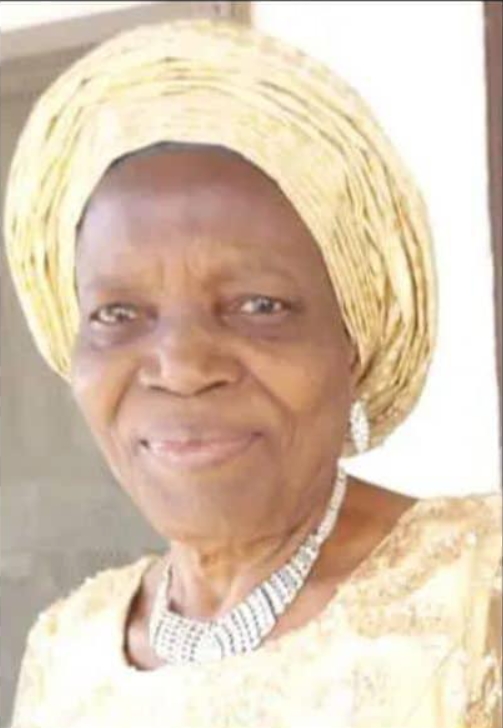Maritime Agencies
FAILURE OF SINGLE WINDOW IN NIGERIA: CGC Outlines Reasons, Offers Solutions.
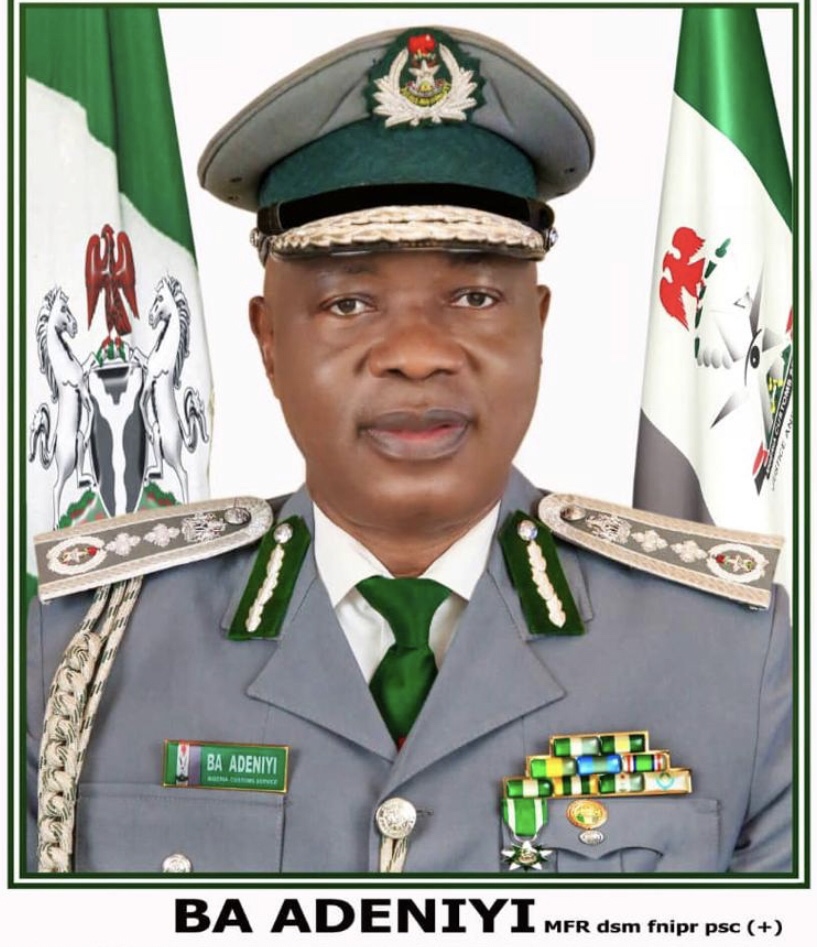
By Izuchukwu Ozoemena
Fragmented technological systems, institutional bottlenecks, misaligned stakeholder expectation and inadequate physical and technological infrastructure have so far been identified as factors working against the successful implementation of the Single Window arrangement in cargo clearance.
“While these obstacles have slowed our progress, they have also provided invaluable lessons that shaped the roadmap for future successes”.
Comptroller General of the Nigeria Customs Service (NCS), Bashir Adewale Adeniyi, disclosed this in Lagos, Tuesday, during a stakeholders’ forum on the National Single Window implementation.
Speaking through Mrs Kikelomo Adeola, Deputy Controller General, (DCG), Information Communications and Technology (ICT), the CGC underlined the importance of continuous stakeholder engagement in the implementation of the Single Window, adding that previous initiatives suffered due to limited collaboration and inadequate communication whose absence bridged the trust gap expected to soften resistance among stakeholders.
According to the World Customs Organisation (WCO), a Single Window (SW) is a trade facilitation concept that enables traders and businesses to submit standardized information and documents through a single entry point to fulfil all regulatory requirements related to import, export, and transit. It simplifies and streamlines interactions with government authorities, thereby improving efficiency and reducing costs and delays in cross-border trade.
Since 2014, Nigeria has made efforts twice to create and implement the Single Window without success.
Adeniyi was of the view that for the National Single Window to work in Nigeria, going forward, all relevant agencies in the country’s trade and revenue system “must embrace a singular purpose backed by an unwavering government support, ensuring that the single window is not perceived as sole mandate, but as a national strategy supported by all stakeholders, including the private sector, financial institutions, and regulatory agencies.
“The centrality of customs in this ecosystem is undeniable,” he continued, “but success requires a symbiotic relationship where each stakeholder plays its path with precision and commitment.” He reasoned that even though technology has often been cited as the cornerstone of the single window system but it cannot offer a solution on itself.
“The deployment of advanced digital platforms must be accompanied by meticulous process reengineering, capacity building, and proper change management. Past efforts in Nigeria have failed due to over-emphasis on technology without adequately addressing the human and operational dimensions. A successful single window system must reflect the peculiarities of Nigeria’s trade environment, incorporating user-friendly designs, inter-operability with existing systems and scalability to accommodate future growth.”
He called for a unified vision driven by strong political will and institutional lapses to overcome fragmentation in leadership and inconsistent policy direction which undermined the effectiveness of earlier initiatives.
“So, a successful single window system must prioritize inclusivity with active consultation and collaboration among government agencies, private sector and development partners. This development must include consultation and involve co-creation where stakeholders actively contribute to system design and evaluation”.
“As we forge ahead,” the CGC stated, “we must harmonize the legal landscape”.
“Eliminating redundancy required ambiguity while instituting possible policies that promote transparency accountability and efficiency. This legal alignment will not only facilitate system implementation, but also boost Nigeria’s compliance to international trade agreements and standards,” he added.
Customs
PTML Customs Hands Over Seized Arms and Ammunition, Collects N44.06bn in January.
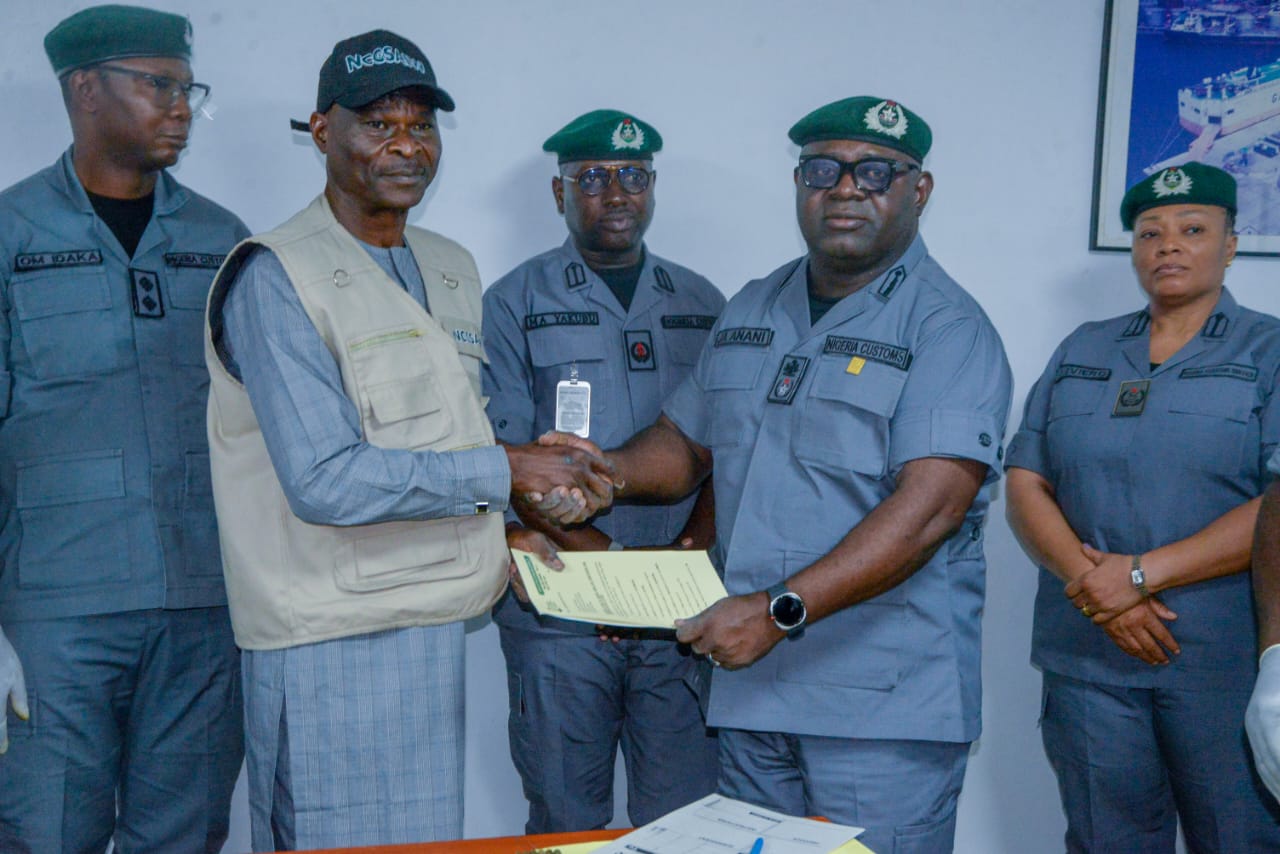
By Izuchukwu Ozoemena
For the umpteenth time, the Ports Terminal Multi-services Limited (PTML) Command of the Nigeria Customs Service has made it clear that it remains a no-go area for unlawful trade under any guise.
As a Command, the PTML Customs has an unshaken commitment to implement the Revised Kyoto Convention, which is a World Customs Organisation (WCO) instrument for trade facilitation while using available manpower and technology to exercise the required control for import and export trade.
The Customs Area Controller, Comptroller Joe Anani stated this at the Command Headquarters in Apapa, Friday, while handing-over seized arms and ammunition to the National Centre for the Control of Small Arms and Light Weapons (NCCSALW).
The seizures consist of five (5) pistols of different makes, one (1) Crossman pump master rifle, 132 Remington live cartridges, 51 9 mm Lugar live ammunition and four (4) 9mm magazines.
Others were forty (40) 9mm, NIM FC 30-30 blank and hollow ammunition and one hundred and eighteen (118) of 9mm empty shells.
”These arms and ammunition were uncovered in 25 different occasions by our officers during the examination of imported vehicles between 2022 to 2025.”
”These seizures are a fallout of the collective due diligence of the Command and other sister agencies in the port.”
The handing-over, he explained, follows the approval of the Comptroller General of Customs, Bashir Adewale Adeniyi, MFR psc(+).
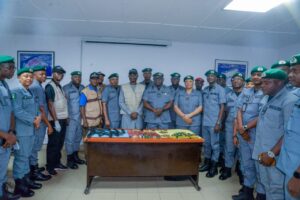
Present at the event was the South- West Coordinator, National Center for the Control of Small Arms and Light Weapons (NCCSALW) and his entourage. Others were the Management of Port and Terminal Multi-services Limited, sectional heads and heads of other sister agencies.
He explained that under the NCS Modernisation Project which was pioneered by the PTML Command, the Unified Customs Management System (UCMS), also known as B’Odogwu, has raised the bar for productivity.
”I am pleased to announce that this Command will receive scanners soon as part of the modernisation project and our capacity to detect concealments, like these arms and ammunition would be greatly enhanced.”
Appreciating the Command’s compliant stakeholders for their cooperation at all times, he described them as l part of the Command’s success story.
The CAC announced that two days to the end of January, 2026, the PTML Command collected a total revenue of ₦44,058,849,416.65. This figure surpasses N40,497,594,223.89 realized in January, 2025 by N3,561,255,192.76, marking an 8.8% increase in revenue.
On behalf of the CGC, Comptroller Joe Anani formally handed over the seizures to the National Center for the Control of Small Arms and Light Weapons (NCCSALW) for appropriate action.
Maritime Agencies
WAR AGAINST KILLER DRUGS: Apapa Customs, NDLEA Collaborate To Nab Huge Quantity of ‘Canadian Loud’.
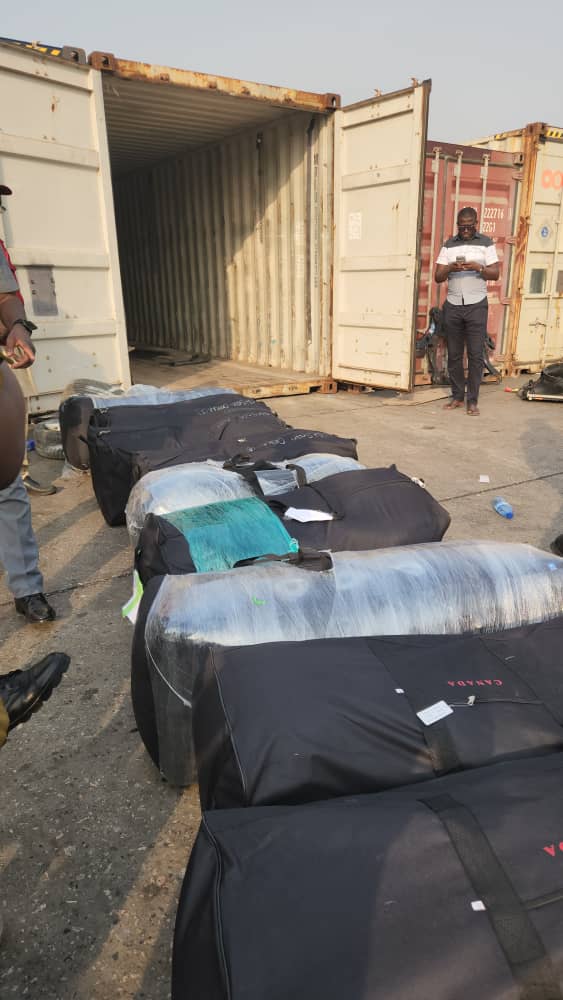
By Izuchukwu Ozoemena
In her unwavering efforts to ensure that killer – drugs do not find entry into Nigeria, the Apapa Command of the Nigeria Customs Service has, in liaison with the National Drug Law Enforcement Agency (NDLEA), intercepted a 347.5 kilograms of ‘Canadian Loud’ concealed in an imported Toyota Sienna car. The highly – valued substance is a potent strain of cannabis, ordinarily known as marijuana.
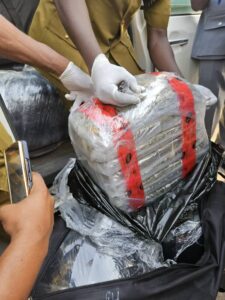
As stated in a press release by CSC Isah Suleiman, the Apapa Customs Command Public Relations Officer, the contraband hidden in 13 bags within one of four vehicles contained in a single consignment was discovered following a painstaking weighing exercise. A breakdown shows ten bags at 25kg each, one at 29kg, and two at 34.5kg and 34kg respectively, totaling 347.5kg.

This interception marks the fourth major joint drug bust by the Nigeria Customs, Apapa Command and the NDLEA in less than two months.
In his remarks, the Apapa Customs Area Controller, Comptroller Emmanuel Oshoba re-enacted his warning to criminal elements and their networks to keep off the Command as the Command is always ahead of them to exploit whatever antics they deploy to undermine national security via the ports.
“Any attempt by criminal elements to traffic prohibited items through Apapa Port will be detected and thwarted. We remain vigilant and resolute in the discharge of our duty to protect our society and national security.”
He emphasized that under his watch, no cargo, whether import or export will pass through Apapa Port without thorough examination.
The operation also reflects the exemplary cooperation between Customs and NDLEA, championed by the Comptroller General of Customs, Bashir Adewale Adeniyi MFR, PhD. Intelligence sharing and joint tactical efforts have consistently outmaneuvered smuggling networks in Nigeria’s maritime sector.
Oshoba credited this strengthened partnership for the success, noting that the upcoming deployment of a high-capacity drive-through scanner capable of processing 200 containers per hour will further revolutionize anti-smuggling operations.
Both agencies continue to operate under strict Standard Operating Procedures (SOPs) that foster zero tolerance, professionalism, and seamless cooperation. In line with established protocols, the seized cannabis has been formally handed over to the NDLEA for further investigation and prosecution of suspects linked to the consignment.
This latest success builds on the recognition accorded to Comptroller Oshoba and NDLEA Apapa Special Area Commander Mohammed Tukur, who were both awarded the WCO Certificate of Merit on January 26, 2026, in Abuja during the International Customs Day celebrations.
Oshoba further explained that the interception aligns with the 2026 ICD theme: “Customs Protecting Society Through Vigilance and Commitment.”
While Customs remains committed to facilitating legitimate trade, the CAC reaffirmed, it will intensify efforts to disrupt illicit activities and safeguard society.
Maritime Agencies
Seme Customs Raids Hideouts, Impounds 200 Bags of Smuggled Rice, Collects N2bn 3 Weeks into 2026.
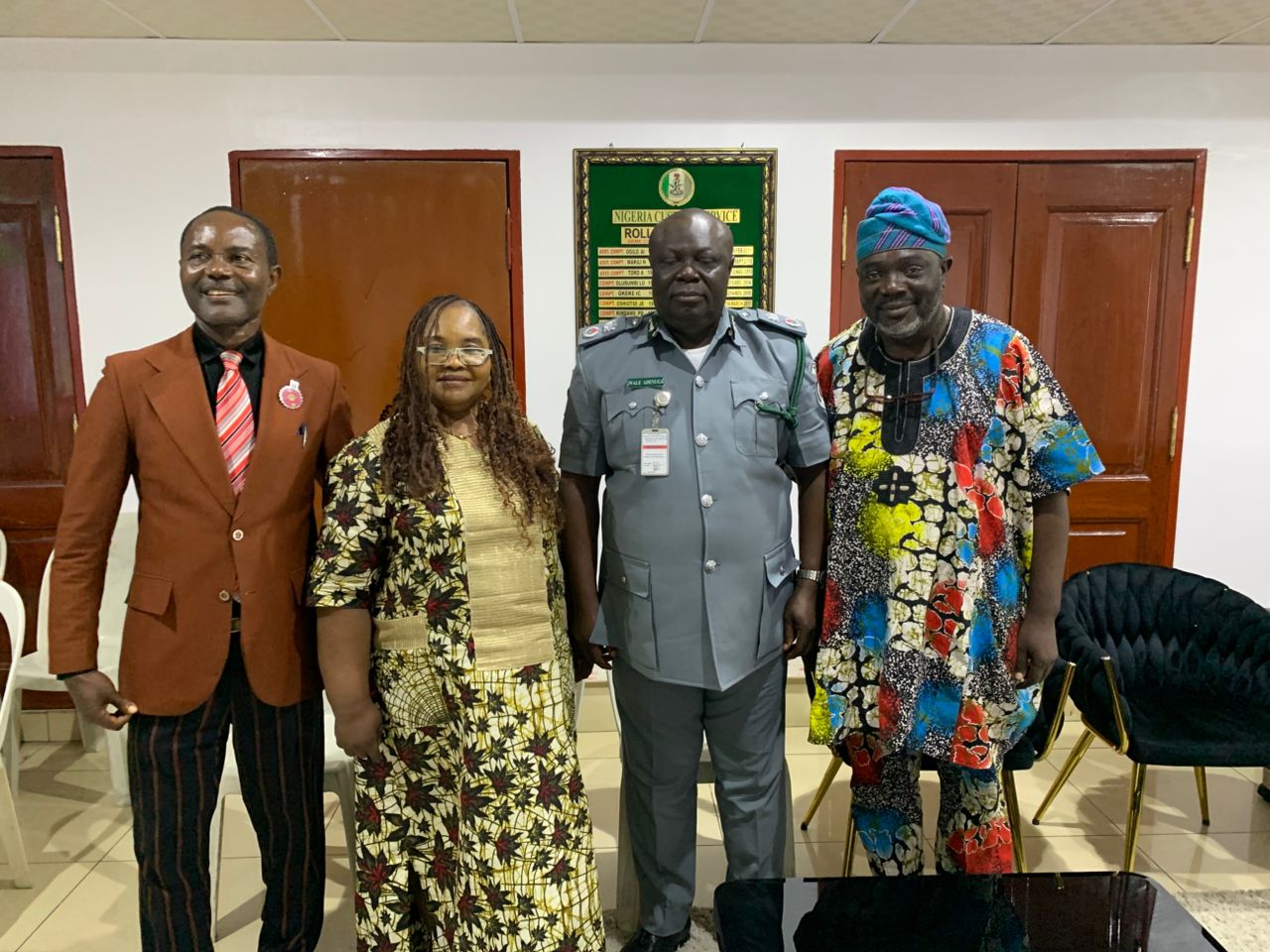
By Izuchukwu Ozoemena
The Customs Area Controller (CAC), Seme Border Command of the Nigeria Customs Service, Comptroller Adewale Adenuga has vowed a continuous raid of the Badagry Roundabout and other notorious points where miscreants assemble and sell smuggled rice.
Just as the Command is taking the fight to smugglers in their routes inside the bush, he explained, it has equally sustained surveillance on other identified distribution points of the smuggled goods in market places.
Consequent upon this, Adenuga disclosed that the anti- smuggling officers of the command raided the selling point of smuggled rice at the Badagry market on January 21st, 2026 where they impounded over 200 bags of smuggled rice.
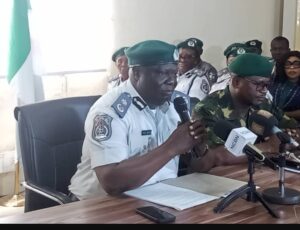
The CAC disclosed this at Seme Command, Wednesday, while exchanging views with the Tunde Ayodele-led Executive members of the Caretaker Committee of the Maritime Reporters Association of Nigeria (MARAN) who were on a courtesy visit.
” We have just raided the Badagry Roundabout where these smuggled rice are being assembled and sold.
” We had on several occasions warned them to desist from this act and leave the place.
”We have even asked the Oba of Badagry on my last visit to his palace before his death to appeal to these people to vacate the point of sale of the smuggled rice”
” They will smuggle the rice through the creeks and then will now come to that place and be selling.
”So if you go there now, you’ll see that it has been cleared” Comptroller Adenuga explained.
On revenue generation, he announced that few weeks into 2026, the Seme Command has maintained the high momentum of generation it had in 2025 as it has collected about 2 billion in the first three weeks of the new year. His men and officers, he maintained, are fired up to surpass the revenue figures recorded last year.
It is recalled that Seme Command recorded the sum of N15.6 billion in 2025 with N3.6billion of the total revenue collected in the month of December.
He maintained that with the continuous support of the Comptroller – General, Wale Adeniyi and his management team, Seme border will continue to sustain the momentum that propelled the officers into 2026.
While pledging to cooperate with MARAN on mutually -beneficial programmes Adenuga promised that Seme Command would maintain a steady course on revenue generation and will never ease the step on the anti- smuggling pedal in the new year.
Earlier in his address, MARAN Caretaker Committee Chairman, Mr Tunde Ayodele, congratulated the Controller on his assumption of duties as the head of Seme command, a feat he said was a testament to his rising profile as a committed customs officer and a reflection of the confidence of the management of the NCS in his managerial acumen to head the busiest border command of the Customs.
Ayodele assured Comptroller Adenuga of the support and collaboration of MARAN to ensure that he succeeds in his assignment.
The MARAN Caretaker Chairman noted that the association has noted with keen interest the vibrancy and transformation in the border operations at Seme which Comptroller Adenuga has brought within the short time he assumed duties.
”We are not surprised at the level of transformation and burst of activities you brought to Seme border operations, given your performance trajectory from your previous duty posts, especially at the Apapa Command where you were the unseen hands in the unprecedented revenue generation witnessed at the Customs’ flagship command when you were DC revenue” the MARAN chief recalled.
Meanwhile, the Comptroller- General of NCS, Adewale Adeniyi, has paid a condolence visit to the palace of Oba of Badagry through Comptroller Wale Adenuga.
According to Adenuga, he went to the palace of the late King on January 21st, 2026 on behalf of CGC Adeniyi to commiserate with the people and chiefs of Badagry Kingdom on the death of their first class monarch.
-
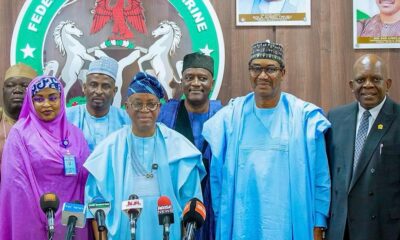
 Customs2 weeks ago
Customs2 weeks agoFG Inaugurates Nigerian Shippers’ Council Board, Highlights Need for Reduced Port Costs, Fair Pricing.
-
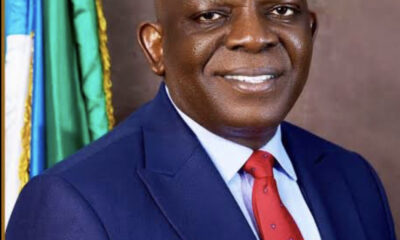
 Maritime Agencies2 weeks ago
Maritime Agencies2 weeks agoSuspend Charges Review, Engage Stakeholders, Shippers’ Council Tasks Shipping Companies
-
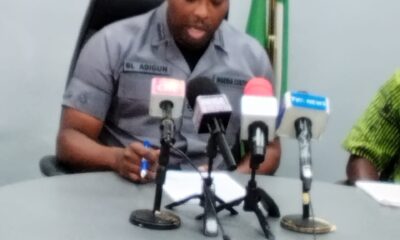
 Customs7 days ago
Customs7 days agoKLT Customs Surpasses 2025 Revenue Target By a Wide Margin, Clamps Down on Expired Imports.
-

 Maritime Agencies6 days ago
Maritime Agencies6 days agoOGUN AREA 1 CUSTOMS: Suspected Armed Drug Traffickers Mount Barricades, Attack Officers. Two Personnel Critically Injured.
-
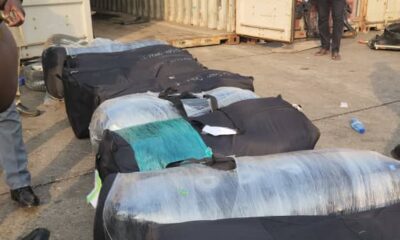
 Maritime Agencies3 days ago
Maritime Agencies3 days agoWAR AGAINST KILLER DRUGS: Apapa Customs, NDLEA Collaborate To Nab Huge Quantity of ‘Canadian Loud’.
-
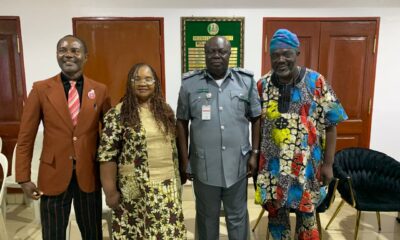
 Maritime Agencies4 days ago
Maritime Agencies4 days agoSeme Customs Raids Hideouts, Impounds 200 Bags of Smuggled Rice, Collects N2bn 3 Weeks into 2026.
-
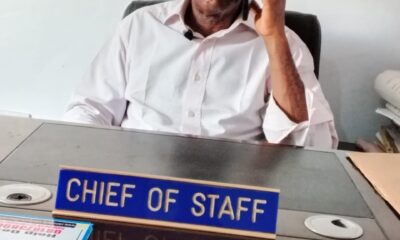
 Maritime Agencies3 days ago
Maritime Agencies3 days agoNAGAFF Compliance Team Set to Relaunch for Stronger Engagement, Enforcement.
-
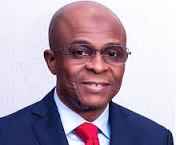
 Customs4 days ago
Customs4 days agoLekki Deepsea Port: The Success Story of the Nigerian Ports Authority.

























